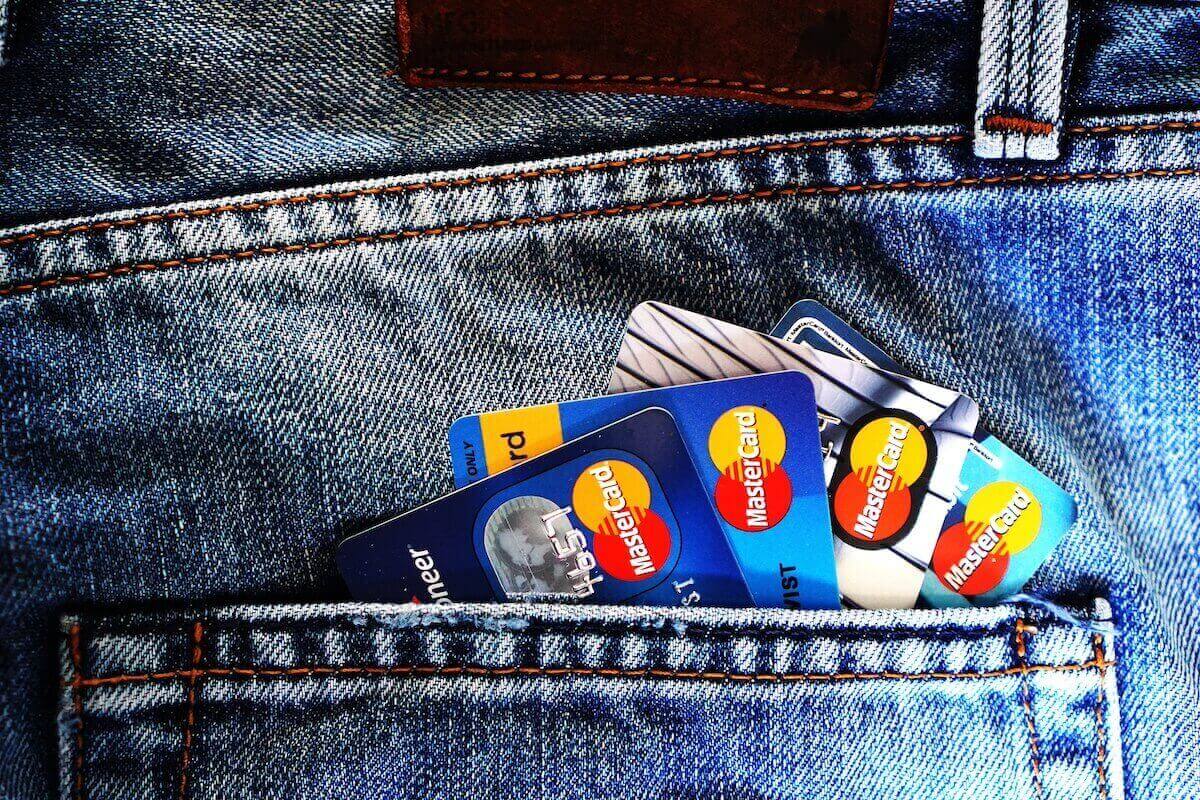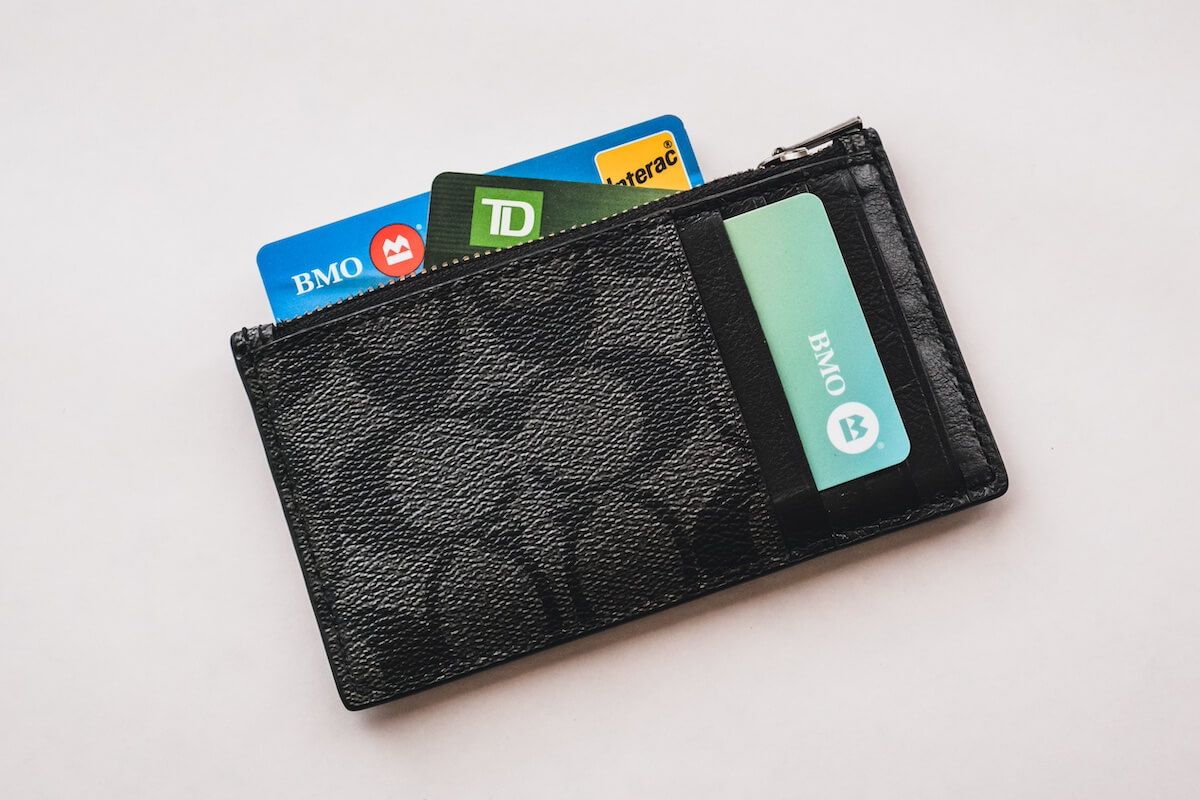Advertiser Disclosure
Last update: January 5, 2024
7 minutes read
What is a Credit Card Cash Advance? Expert Insights on Benefits and Pitfalls
Dive into the world of cash advances: the pros, cons, and hidden fees. Make informed financial choices with our expert insights.

By Brian Flaherty, B.A. Economics
Edited by Rachel Lauren, B.A. in Business and Political Economy
Learn more about our editorial standards


Ever been caught in a jam with an empty wallet, and thought of using your credit card at the ATM? I bet the idea has danced in your mind once or twice. But what is the true cost of that tempting "cash advance" feature on your credit card?

Key takeaways
- Cash advances allow you to withdraw money against your credit card limit
- They should be used only in emergencies due to high fees and APRs
- Cash advances can impact your credit score by affecting your credit utilization rate
What is a cash advance?
What is a cash advance? A cash advance is when you withdraw money at the ATM against your credit card limit. Think of it like using your credit card to "buy" cash rather than goods or services. It sounds straightforward, but this move can cost more than you might expect.
How do cash advances work?
You might think, "Hey, it's just like taking out cash with my debit card, right?" Well, not really. A cash advance is like a mini loan from your credit card. You're borrowing against your credit limit. And while that sounds simple enough, the process and the costs involved are where things get tricky.
You can usually take out from $100 to up to 30% of your credit limit. But here's the kicker: your credit card usually charges an additional fee to do a cash advance. So, if you're thinking of pulling out a cool $1,000 and your fee is 3%, you'll have to pay your credit card an extra $30 on top of the $1,000 you need to repay. I'll let that sink in.
What's the real cost of a cash advance?
Let's break it down:
- Cash advance fee: This is either a fixed amount, say $10, or a percentage of the cash advance, which can be anywhere from 3%-6%. This is paid straight to your credit card company. So if your card has a limit of $5,000, and you think you're smartly taking out $1,500, you actually might owe back $1,600, depending on the rate.
- ATM or bank fees: Used a different bank's ATM? More fees. Did you take the advance from a bank in person? They might charge for that luxury, too.
- Higher APR: The interest rate on cash advances can be higher than your card's usual rate. And interest starts piling on immediately. No grace period. Insane, right?
What's the impact on my credit?
Now, let's dive into a topic many tend to overlook: your credit score. You might be thinking, "How bad can it be, right?" Well, let's take a look.
Credit utilization
Every time you use your card, you're using a portion of your credit. Cash advances take up a chunk of this. So, if you're maxing out or taking a big amount, you're increasing your credit utilization rate. Financial gurus always advise keeping this rate below 30%.
So, if you've got a credit limit of $5,000, you really don't want to be using more than $1,500 at any given time. And with cash advances, it's easy to forget this golden rule.
Credit score
If you're not careful, cash advances can start a domino effect. High utilization can affect your credit score. A lower score can affect future loan approvals, interest rates, your ability to rent, and even job opportunities (yeah, some employers check credit scores!).
So, while that quick cash might solve today's problem, it could introduce a bunch of new ones tomorrow.
Are cash advances ever a solid choice?
I'm not a big fan of them. They're expensive. But sometimes, they might be the lesser evil. However, if you're diving into this, do it with your eyes wide open:
- Pay it off ASAP: Interest starts kicking in from day one. You don't want that counter running for long.
- Limit the amount: Only take out what you really need.
Looking for alternatives to cash advances?
We've all been there, low on cash and looking for a quick fix. But before you jump onto the cash advance train, here are some alternatives you might want to consider:
- Debit card: Use it to access funds from your checking or savings.
- Personal bank loan: This might be a better option with lower interest rates.
- Savings or emergency fund: If you've been smart and kept one, now might be the time to dip in.
- Borrow from friends or family: A bit old school, but hey, sometimes it's the best option. Just remember, always pay it back. Nobody likes that person who "forgets".
Advantages and disadvantages of cash advances
Navigating the world of finance can be a challenge, especially when learning about cash advances. Here, we'll lay down the benefits and pitfalls, giving you a clearer view of this option.
Advantages of Cash Advances
- Immediate access to funds: Perfect for emergencies when you need cash right now.
- Available worldwide: Most ATMs globally will provide a cash advance, so you're not limited by location.
- No approval process: Unlike traditional loans, there's no waiting period or approval. If you have the credit, you can access the cash.
- Option for those without a bank: For people without a traditional bank account, it provides a way to get cash.
Disadvantages of cash advances
- High interest rates: Often, the APR for cash advances is a lot higher than standard rates.
- Immediate interest: Interest starts accruing from day one, unlike standard credit card purchases which might have a grace period.
- Fees galore: From cash advance fees to potential ATM fees, the costs can stack up.
- Potential credit score impact: High credit utilization from a cash advance can negatively affect your credit score.
How can you get a cash advance?
- At an ATM: Like your regular cash withdrawal, but you'll use your credit card and its PIN. If you're scratching your head, thinking, "What PIN?", you can often get it from your card issuer online.
- At your bank: Just show up, show your ID, and you're good to go.
- Over the phone: Some credit card companies let you call them up and have the cash transferred to a bank account. Handy, but not all companies offer this.
Before you go charging into the world of cash advances, here's a quick table of some do’s and don'ts to keep in mind:
Do
Pay off the balance ASAP
Limit the amount you withdraw
Check other financial alternatives
Don't
Forget about the fees
Use it as a regular ATM
Neglect the impact on your credit score
How TuitionHero can help you
So anyway, while we're on the topic of credit and finances, let's pivot to something close to my heart. Ever heard of TuitionHero? Yeah, that's us! We're not just about figuring out credit card cash advances. We're here for students and parents, offering a bunch of helpful services.
Need money for school? We've got Private Student Loans. Want to save cash in the long run? Check out our Student Loan Refinancing. Are scholarships confusing? We can help you with that. FAFSA feeling overwhelming? Our FAFSA Assistance can make it easier.
And if you're after credit cards that fit your student life, our Credit Card Offers are pretty awesome. We're all about setting you up for a brighter future with smart finance decisions.
Final thoughts
In the world of finance, knowledge is power. Cash advances might seem like a fast fix, but there's more to it. Taking a moment to learn about the costs and what could happen can help you make smarter money choices. Remember, there might be other ways to handle emergencies that cost less. At TuitionHero, we're here to help you understand and make smart choices for a safer financial future.
Frequently asked questions (FAQ)
A credit card cash advance involves withdrawing cash from your credit card, while a regular purchase involves buying goods or services directly with your card. Cash advances often have higher fees, interest rates, and may not have a grace period like regular purchases.
While it's technically possible to use a credit card cash advance to pay off other debts, it's generally not advisable due to the high fees and interest rates associated with cash advances. It's often more financially beneficial to explore other debt consolidation options.
Yes, there are alternative options like personal loans, borrowing from friends or family, or establishing an emergency fund that might have lower fees and interest rates compared to credit card cash advances.
Yes, the terms and conditions for credit card cash advances, including fees, interest rates, and limits, vary among credit card issuers. It's essential to review your card's specific terms before considering a cash advance.
Sources
Author

Brian Flaherty
Brian is a graduate of the University of Virginia where he earned a B.A. in Economics. After graduation, Brian spent four years working working at a wealth management firm advising high-net-worth investors and institutions. During his time there, he passed the rigorous Series 65 exam and rose to a high-level strategy position.
Editor

Rachel Lauren
Rachel Lauren is the co-founder and COO of Debbie, a tech startup that offers an app to help people pay off their credit card debt for good through rewards and behavioral psychology. She was previously a venture capital investor at BDMI, as well as an equity research analyst at Credit Suisse.
At TuitionHero, we're not just passionate about our work - we take immense pride in it. Our dedicated team of writers diligently follows strict editorial standards, ensuring that every piece of content we publish is accurate, current, and highly valuable. We don't just strive for quality; we aim for excellence.
Related posts
While you're at it, here are some other college finance-related blog posts you might be interested in.
Shop and compare student financing options - 100% free!

Always free, always fast
TuitionHero is 100% free to use. Here, you can instantly view and compare multiple top lenders side-by-side.

Won’t affect credit score
Don’t worry – checking your rates with TuitionHero never impacts your credit score!

Safe and secure
We take your information's security seriously. We apply industry best practices to ensure your data is safe.
Finished scrolling? Start saving & find your private student loan rate today





